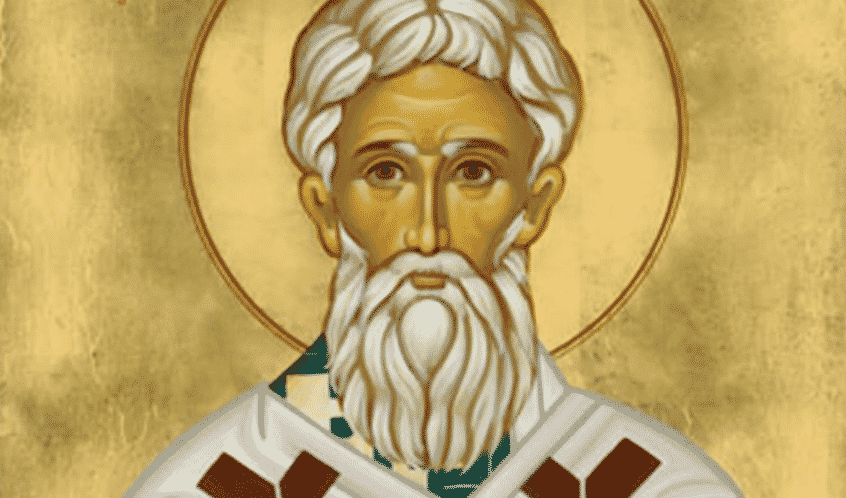STAY INFORMED
Must Watch Videos
Give Up Heresy for Lent says Pope Saint Leo the Great
In order to prepare for Lent, I was looking at the Lenten sermons of Pope Saint Leo the Great (died AD 461).
In his Sermon 46 on Lent, he exhorts the faithful to fast from food and luxury and vain thoughts. And then he goes further and exhorts them to give up heresy for Lent:
For the mind then only keeps holy and spiritual fast when it rejects the food of error and the poison of falsehood, which our crafty and wily foe plies us with more treacherously now, when by the very return of the venerable Festival, the whole church generally is admonished to understand the mysteries of its salvation.

What’s the historical background here? Pope Saint Leo the Great was battling a heresy called Monophystism in the Eastern Church that falsely taught that Christ’s human nature was absorbed or mixed into His divine nature so that Christ only had a single (mono) divine nature (physis). The human nature was no longer there. This essentially means that Christ is no longer human but only divine.
[To learn more about these ancient heresies and how the Popes and bishops refuted them, please explore the New Saint Thomas Institute’s Online Video Classes on Church Fathers and Catholic Ecumenical Councils by clicking here.]
These heretics were backed by the Emperor, the political strongholds of the time, and by the Patriarch of Alexandria. It was a time of schism, infighting amongst bishops, and confusion among the laity. The temptation for Pope Leo and others was to compromise the Catholic Faith in order to keep the Empire and the Church united under a false theology. This Pope Leo refused to do. He called a council (Chalcedon in AD 451) and issued his orthodox “Tome of Leo” which explained how Christ’s divine nature and human nature were united in His one divine Person or in Greek, His divine hypostasis.
Pope Saint Leo labored to defend and explain the Truth because the truth sets us free from sadness, error, and sin. In order to live right, we need right morals and right thinking (which is one reason why the Catholic Tradition is rich in education and in the establishment of schools and universities.)
Christ our Lord and Savior taught that it was not food or drink entering the mouth that justifies or condemns a man, but rather the thoughts and words that come from his mouth (Matthew 15:16-20). We need to habituate right thinking.
The Greek word for “orthodox” is ὀρθοδοξία (orthodoxia) and it literally means “straight thoughts.” Similarly, an orthodontist provides you with “straight teeth,” and an orthopedic doctors are those that originally made sure that children (pedi-) developed straight (ortho-) bodies. Let’s go to the Doctors of the Church and acquire “straight thoughts” regarding God, salvation, and morality.
Giving Up Sinful Thoughts Against Morals and Against Faith
We often think of sinful thoughts as angry thoughts, lustful thoughts, and covetous thoughts. These are the kind of thoughts that we so often confess in the confessional. These are our thoughts against Catholic morals.
However, we might also serious thoughts against Catholic faith. We may even be repeatedly tempted to entertain these thoughts. This is what Pope Saint Leo warns us about in particular in his Sermon 46.
How do we combat these thoughts against faith and doctrine? Saint Leo provides the answer by exhorting us “to understand the mysteries of its salvation.” We must labor to understand the beautiful mysteries that Christ left for us within His Church.
Here are three ways that we can begin to grow in “understand[ing] the mysteries of salvation.”
- Read the New Testament daily:
Read 1-3 chapter(s) every morning. The Catholic Church holds that Sacred Scripture is “the very soul of sacred theology” (Dei Verbum 24). Moreover, “Ignorance of Scripture is ignorance of Christ” (Saint Jereome). And Pope Benedict XVI taught that “the normative theologians are the authors of Holy Scripture.” And if you’ve never read the New Testament, it’s time to read the whole thing. Lent is a perfect time to establish this goal. Right theology begins with a knowledge of the New Testament. - Read books by the Saints:
People ask me all the time about the best and latest books on theology. My rule of thumb is if you haven’t read the top ten classic works of Catholic Patristic Theology and the Summa theologiae, you probably shouldn’t be reading new theology. Build a foundation first. Here are some recommendations (most these books are under 200 pages):- St Augustine Confessions
- St Athanasius On the Incarnation
- St Basil On the Holy Spirit
- St John Damascus Three Books on the Divine Images
- St Ignatius of Antioch Epistles
- St John Chrysostom On Marriage and Family Life
- St Cyril of Alexandria On the Unity of Christ
- St John Chrysostom On the Priesthood
- St Gregory Nazianzus Sermons and Letters
- St Leo the Great Letters and Sermons
- Take a theology class or course:
Enroll in a theological class at your parish, at a trusted university, or somewhere else. Here’s a sample class from the New Saint Thomas Institute on Pope Saint Leo the Great in 10 Points. I hope you will be encouraged and filled with hope as you discover the Pope to be given the title “the Great.” We all need to foster a devotion to this great theologian and Pope: Saint Leo the Great.You’re always invited to watch video lessons on Philosophy, Historical Theology, etc:
Have a happy and holy Lent!
Pope Saint Leo the Great, pray for us!
Godspeed,
Taylor Marshall
[reminder]
Dive Deeper

GET CONFIDENT IN YOUR FAITH
Explore the fascinating world of Catholic teachings with Dr. Marshall. Together you’ll unpack the brilliant answers the Church gives to tough questions about the Faith. The best part: you go at your own pace. Start this exciting journey today.
